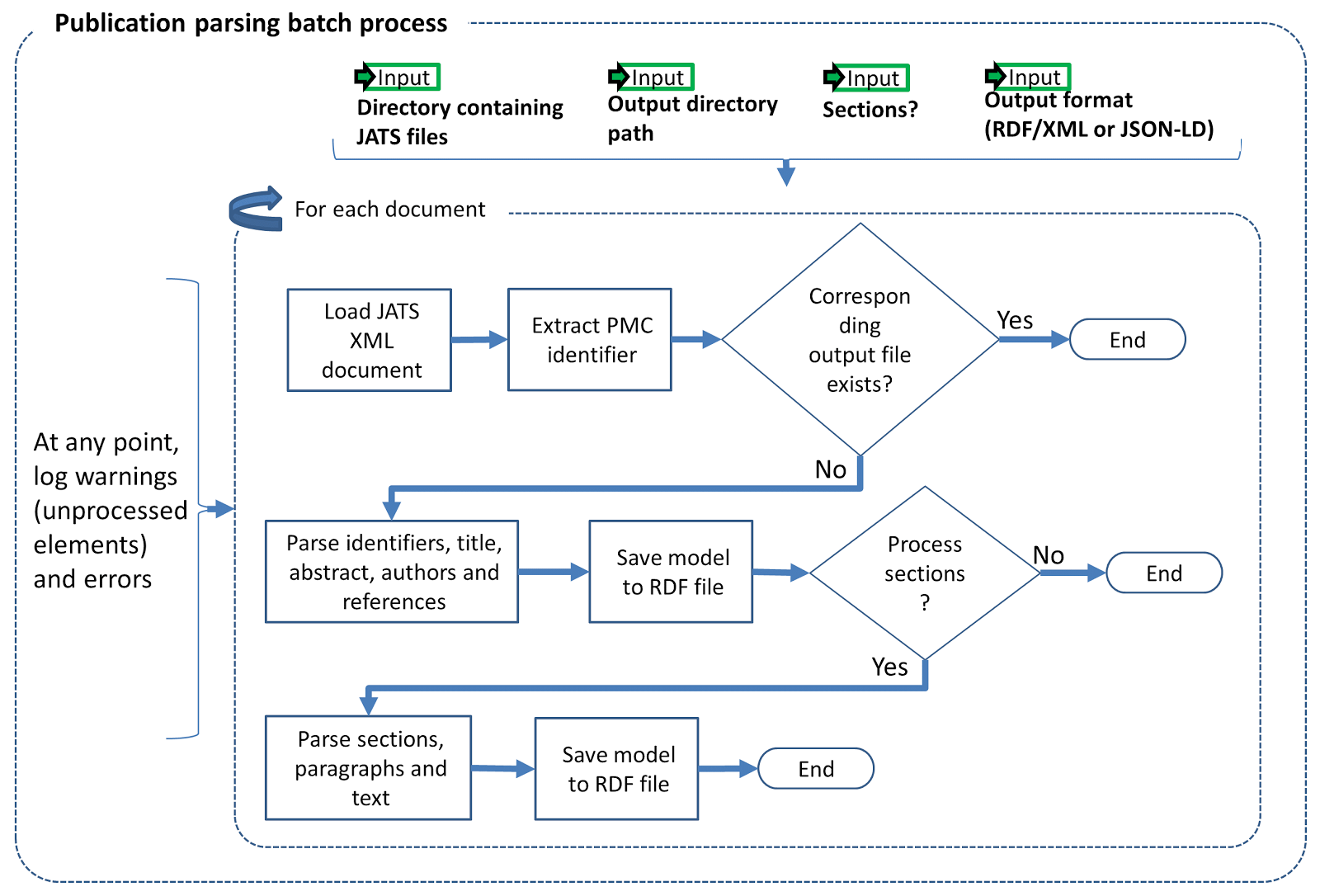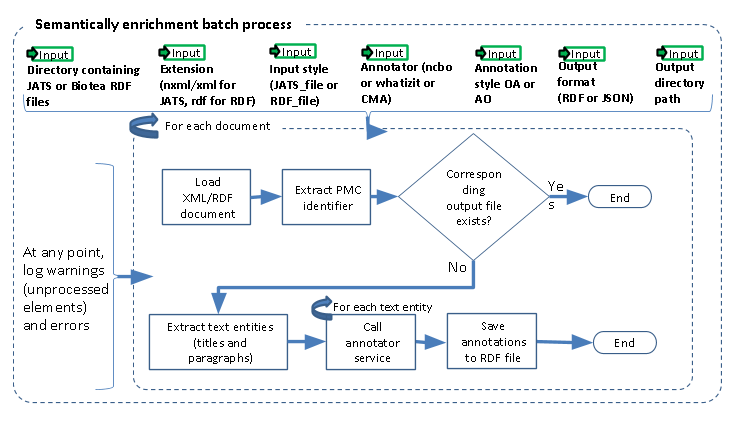Software
Publication parsing process
The input to our Publication Parsing process are the articles from PMC-OA in the Journal Articles Suite (JATS) format, .i.e., XML files following a specific metamodel. Our RDFization entails generating one RDF to represent the metadata and references and another one to represent the structure –sections and paragraphs, and content –actual text.

Semantic Enrichment Process
We identify and annotate meaningful fragments within paragraphs by using the named entity recognition (NER) service provided by the NCBO Annotator. The NCBO Annotator is part of the BioPortal platform, it provides access to more than 350 ontologies and terminologies. The NCBO annotator makes it possible to semantically annotate text by recognizing the entities and establishing a link to an ontology. When doing ontology-based indexing, one might use these annotations to ’bring together’ the data elements from different resources. The NCBO Annotator is based on Mgrep; it recognises and associates expressions in the text with unique concepts from biomedical ontologies. The NCBO Annotator utilizes to its advantage the hierarchy in the vocabularies used for the association.

Binary distribution
User Biotea .JAR distribution with the configuration used to generate the Dataset using the Biotea Generation Support scripts available here.
Using the Dockerfile
git clone https://github.com/biotea/biotea-generation-support.git
cd biotea-generation-support
Open the ‘biotea_annotation.jar’ file with a compression utility and edit the ‘apikey.properties’ file in order to include your Bioportal API key. Then create the ‘input’ and ‘output’ directories in the ‘biotea-generation-support’ path. Put the files you want to process in the ‘biotea-generation-support/input’ path.
sudo docker build -t username:biotea-generation .
After building the Docker image you can run a docker container. In order to generate the metadata files for the included input files you have to run:
sudo docker run -v /<ABSOLUTE PATH TO THE CLONED REPO>/biotea-generation-support/input:/biotea/input -v /<ABSOLUTE PATH TO THE CLONED REPO>/biotea-generation-support/output:/biotea/output -it username:biotea-generate --input_dir /biotea/input/ --output_dir /biotea/output/ --metadata
In order to generate the annotation files for the included input files you have to run:
sudo docker run -v /<ABSOLUTE PATH TO THE CLONED REPO>/biotea-generation-support/input:/biotea/input -v /<ABSOLUTE PATH TO THE CLONED REPO>/biotea-generation-support/output:/biotea/output -it username:biotea-generate --input_dir /biotea/input/ --output_dir /biotea/output/ --annotation
Biotea Explorer Prototype
You can explore Biotea using the software prototype available here
Exploring and Experimenting Biotea with R
Cosine similarity in R, a simple use case here.
SWATS 2012 Biotea Prototype
Another Biotea use case was exposed in:
García-Castro, Leyla Jael, Alexander García Castro and John Gómez. “Conceptual Exploration of Documents and Digital Libraries in the Biomedical Domain.” SWAT4LS (2012). [online]